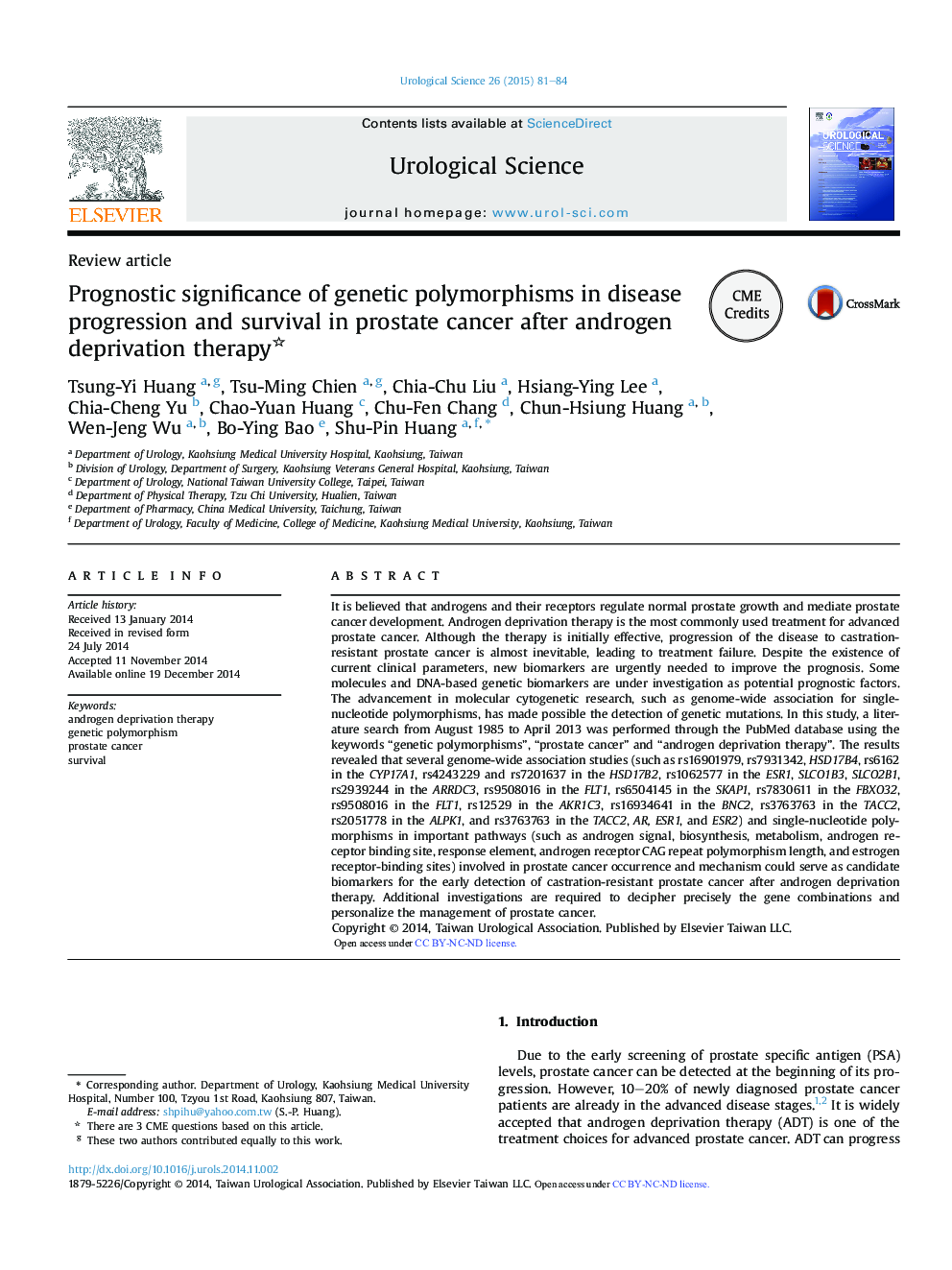| کد مقاله | کد نشریه | سال انتشار | مقاله انگلیسی | نسخه تمام متن |
|---|---|---|---|---|
| 4276235 | 1285391 | 2015 | 4 صفحه PDF | دانلود رایگان |
It is believed that androgens and their receptors regulate normal prostate growth and mediate prostate cancer development. Androgen deprivation therapy is the most commonly used treatment for advanced prostate cancer. Although the therapy is initially effective, progression of the disease to castration-resistant prostate cancer is almost inevitable, leading to treatment failure. Despite the existence of current clinical parameters, new biomarkers are urgently needed to improve the prognosis. Some molecules and DNA-based genetic biomarkers are under investigation as potential prognostic factors. The advancement in molecular cytogenetic research, such as genome-wide association for single-nucleotide polymorphisms, has made possible the detection of genetic mutations. In this study, a literature search from August 1985 to April 2013 was performed through the PubMed database using the keywords “genetic polymorphisms”, “prostate cancer” and “androgen deprivation therapy”. The results revealed that several genome-wide association studies (such as rs16901979, rs7931342, HSD17B4, rs6162 in the CYP17A1, rs4243229 and rs7201637 in the HSD17B2, rs1062577 in the ESR1, SLCO1B3, SLCO2B1, rs2939244 in the ARRDC3, rs9508016 in the FLT1, rs6504145 in the SKAP1, rs7830611 in the FBXO32, rs9508016 in the FLT1, rs12529 in the AKR1C3, rs16934641 in the BNC2, rs3763763 in the TACC2, rs2051778 in the ALPK1, and rs3763763 in the TACC2, AR, ESR1, and ESR2) and single-nucleotide polymorphisms in important pathways (such as androgen signal, biosynthesis, metabolism, androgen receptor binding site, response element, androgen receptor CAG repeat polymorphism length, and estrogen receptor-binding sites) involved in prostate cancer occurrence and mechanism could serve as candidate biomarkers for the early detection of castration-resistant prostate cancer after androgen deprivation therapy. Additional investigations are required to decipher precisely the gene combinations and personalize the management of prostate cancer.
Journal: Urological Science - Volume 26, Issue 2, June 2015, Pages 81–84
